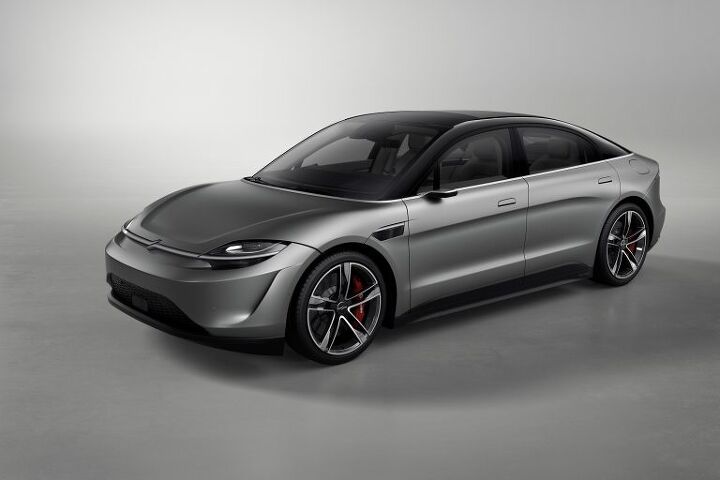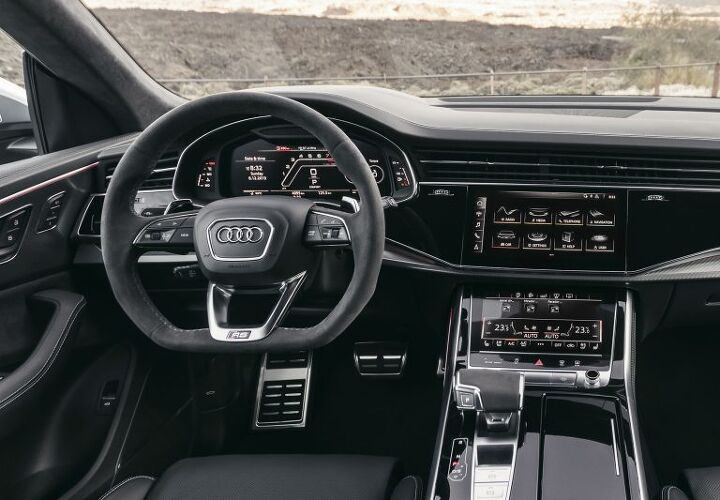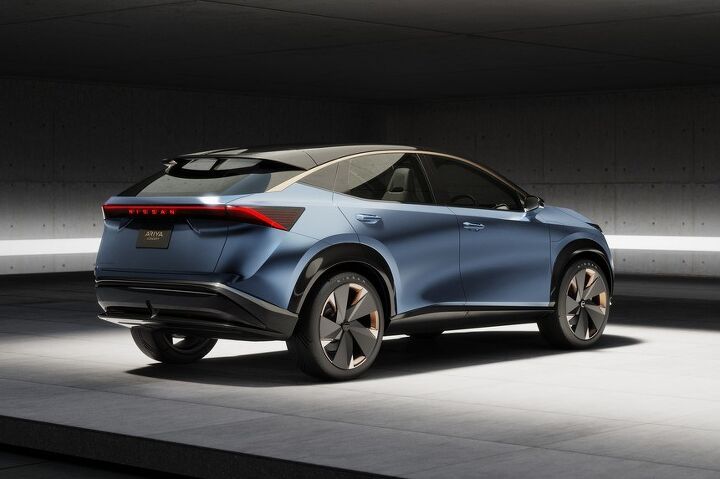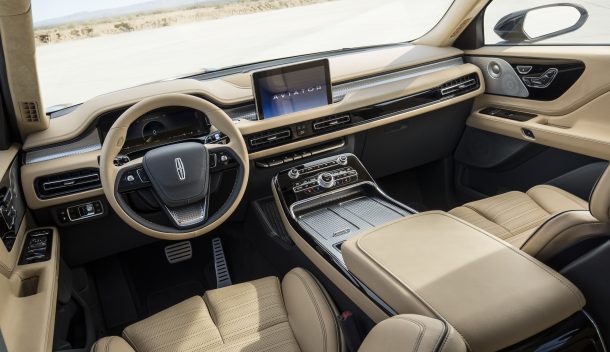#technology
Sony Vision-S: A Car From the Maker of the Walkman
When it comes to forward-thinking concept vehicles, “vision” ranks among the most popular words used by automakers to convey their futuristic aspirations to the general public. Among real-world production models, the letter “S” best signifies a vehicle either at the top or bottom of its game. There’s no in-between when it comes to S; it’s either Sport, or base.
So it’s forgivable if the reader finds the name bestowed on a prototype vehicle launched Monday night at the Consumer Electronics Show to be both generic and instantly forgettable. But the Vision-S is real, and it was built by a company best known for putting music in the hands of the teeming masses, not cars.
A Year in Review - 17 Observations From a 2019 Spent Watching the Automotive Industry
From the characters that control it to the engines at the heart of it, from the history that hems it in to the future that waits for it, from the designs that define it to the manufacturing that fulfills it, the automotive industry has something for everyone.
That’s why we cover it. That’s why we read about it. That’s why we drive and research and analyze, why we memorize specs and memorialize eras, why we wax eloquent when given the opportunity to explain the inherent balance of an inline-six, and why we correct people when they say, “CVT transmission.”
It’s also why we develop deep-seated automotive opinions that have as much chance of coming undone as your Jordan versus LeBron GOAT verdict. (Jordan, obviously. Gretzky, Federer, Mays, and Brady, too, for the record.)
Despite the fact that there was no shortage of automotive opinions dancing around in my head in those twilight moments before sleep each night at the beginning of the year, I nevertheless developed more conclusions over the course of 2019. After having little time to think of much else, and after driving hundreds of different cars, here’s an exhaustive (and exhausting) 17-part sampling.
GM Blames UAW for EV-free CES
Could we have fit more acronyms in that headline? Doubtful.
Now safely ensconced in a four-year labour deal with the workers who left its assembly lines in the dark for six weeks, General Motors is blaming this fall’s strike for a product delay. Well, a delay of a debut, really.
As a result, next month’s Consumer Electronics Show in Las Vegas will have to do without a new GM electric vehicle.
Report: Audi Wants to Ditch Interior Buttons, Free up More Screen Space
With Cadillac torpedoing any hope we had that the touchscreen trend might come to swift end, we started digging around to see the latest and greatest interior screen experiences automakers are hoping to push onto the market. The worst offenders cropped up in concept vehicles, though most automakers aspire to equip future models with more screen space than you’ll know what do with — see China’s Byton for an example.
As for less speculative specimens, Audi had us covered. The brand’s MMI Touch Response infotainment system sacrifices physical controls for three rather large interactive displays. Limited to higher-end models (A6, A7, A8, and Q8), MMI groups a 12.3-inch digital gauge cluster, 10.3-inch central console, and a smaller 8.6-inch display for controlling the HVAC system. Apparently, that’s the interior Audi wants to run with for all future vehicles while it works up something new.
BMW Changes Mind on Apple CarPlay Subscriptions
BMW is walking back its controversial decision to charge an annual subscription for the use of Apple’s CarPlay in its vehicles. We quickly complained about it, worried that it would spur a new trend of charging customers for the privilege of accessing what is normally standard content.
The German manufacturer originally said the subscription fee was necessary in order to offer wireless updates aimed at keeping the user interface evolving with phones. This was soon proven not to be the case, as other manufacturers already offer that exact service for free. BMW wanted to charge $80 a year (or $300 for a 240-month plan) after providing CarPlay free of charge for 12 months. Now, it will be gratis.
Australia Introduces Phone Detection Cameras for Roads
Australia put up the first phone-detecting cameras in New South Wales over the weekend. The move is part of a broader plan to reduce roadway fatalities by 30 percent by 2021 — especially as new technologies continue to exacerbate the issue of distracted driving. “It’s a system to change the culture,” NSW Police Assistant Commissioner Michael Corboy told Australian media las week.
There’s nothing incredibly new about the cameras themselves. But they’re networked to an artificial intelligence that determines whether or not someone behind the wheel is using their phone. Suspect images are then forwarded to authorized personnel to be verified as truly criminal.
Volkswagen Boosts Tech Spending to $66 Billion Over Five Years
Volkswagen Group has decided to increase spending on the development of electric and digital technologies over the next five years to 60 billion euros ($66 billion USD). The automaker estimated the revised strategy amounts to slightly more than 40 percent of its investments in property, plant and equipment, and all research and development costs during the planning period.
Of that sum, 33 billion euros are expected to go directly toward the development of new electric vehicles. The increase allocates roughly €12 billion annually for hybridization, electric mobility and digitalization. The old plan set aside 8.8 billion euros per year.
Toyota Thinks Connected Wiper Data Can Improve Weather Forecasts
Toyota and Japanese weather information provider Weathernews Inc. have been running tests aimed at improving the accuracy of rain forecasts by using driving data from connected cars — or, more specifically, their windshield wipers. Based on the assumption that wiper operations correspond with the presence of precipitation, matching the severity to speed settings, the pair feel they can leverage customer information to close info gaps created by low-altitude rain clouds that are difficult to track.
With an official announcement issued earlier this month, both companies are framing this as an effective way to bolster roadway safety and offer new services to its customers. But it also raises the usual round of privacy concerns re: connected vehicles, while potentially offering some interesting and useful features — like localized flood warnings and other traffic advisories.
States Begin Dealing With Driving Data, Right-to-Repair Laws
In reading this website, you’ve no doubt come across paranoid rants about automotive companies vacuuming up your personal data as connected cars become the norm — often written by yours truly. Frequently bleak, they address a multitude of concerns we believe will only get worse before they can get better.
A large part of that has to do with automakers seeing the potential of leveraging customer data, like so many tech companies have before them. But elected (and unelected) officials also seem to have a loose grasp of the technology and its potential ramifications. When the Department of Transportation initially approved self-driving vehicles for public testing, the guidelines were loose and largely dependent upon self-reporting — few wanted to stand in the way of developing systems that might someday save lives.
However, manufacturers are now beginning to issue over-the-air updates, perpetual internet connectivity, gamification, and in-car marketplaces (complete with advertisements). While the new technology has opened up new doors for customer experiences and corporate revenue, it’s accelerating at a pace that’s difficult to track. As a result, lawmakers in Massachusetts and California are starting to get antsy. The former hopes to address how data will be handled in accordance with the state’s right-to-repair laws. The latter is more directly concerned with privacy.
Ford's Adding Over-the-air Updates, Bigger Screens, More Connectivity
The days of owning an automobile that’s not perpetually connected to various digital networks are quickly coming to a close. On Wednesday, Ford announced most of its redesigned vehicles in the U.S. with have over-the-air update capability after 2020. The automaker is framing this as a way to “repair” your vehicle at home and offer new features after a model has already been purchased.
“Nobody wants to feel like they’re missing out on great features right after spending their hard-earned money on a new vehicle — that’s where our over-the-air updates can help,” said Don Butler, executive director of Ford’s connected services. “We can now help improve your vehicle’s capability, quality and overall driving experience while you’re sleeping.”
While the prospects of giving auto manufacturers remote access to your car are vast, it’s also a double-edged sword. Over-the-air updates would undoubtedly save you a trip to the service center in the event of a code-based recall but it also opens vehicle’s up to privacy concerns and gives automakers new avenues for business.
Apple Co-founder Claims Autonomous Cars Aren't Happening
Apple co-founder Steve Wozniak has officially given up on autonomous vehicles, despite previously being a major proponent of their advancement. “I stepped way back [on] this idea of Level 5. I’ve really given up,” Wozniak at last week’s J.D. Power Auto Revolution conference in Las Vegas. “I don’t even know if that will happen in my lifetime.”
Automotive News reported the quote on Monday, noting that Steve’s tune has changed dramatically from the days where he optimistically saw Apple blazing the trail for advanced driving technologies — something that requires one to venture several years into the past. He’s been harder on the systems more recently, openly expressing his growing doubts since 2017.
“What we’ve done is we’ve misled the public into thinking this car is going to be like a human brain to be able to really figure out new things and say, ‘Here’s something I hadn’t seen before, but I know what’s going on here, and here’s how I should handle it,'” Wozniak explained. “A human can do that.”
Nissan Charging Forward on Electric AWD, Solid-state Batteries
The Nissan Ariya Concept seen Wednesday at the Tokyo Motor Show will likely become a reality with little change in outward appearance, but you don’t need a sit-down with a group of Nissan engineers to figure that out. While the company admits an EV crossover is in the cards for the coming year (probably 2021 for the U.S.), the vehicle’s internals remain something of a mystery.
Shedding some light on the vehicle’s underbody bits, the Nissan engineers also opened up on a potentially revolutionary battery technology — as well as a detail that could help hesitant American drivers get behind the wheel of a (mostly) electric vehicle.
As Consumer Complaints Mount, Lincoln's Aviator Appears Not Fully Baked
Ford Motor Company may have sidelined thousands of 2020 Ford Explorers and Lincoln Aviators due to hazy manufacturing issues, but it seems many vehicles slipped through the quality dragnet and into the hands of consumers.
You saw a eyebrow-raising walkaround of a dealer-fresh Aviator here the other week. Owners, however, get to slip behind the wheel and, in some cases, experience a bewildering array of symptoms.
Reportedly Terrible: AAA Tests Pedestrian Detection Systems
The paranoid luddites that write for this site have occasionally been accused of being hyper critical of modern-day driving aids. Be it a cursory mention of how a little snow totally flummoxed the systems of an otherwise agreeable review car, the direct addressing of an issue where road salt encouraged a vehicle to attempt to steer itself into a ditch, or one of this author’s many diatribes on how the bulk of this technology doesn’t seem anywhere near market ready, there’s always a couple of exceptional individuals ready to call us backward-looking morons.
While that’s often a correct assessment in other matters, it seems we’ve called this one correctly. The American Automobile Association (AAA) recently tested four sedans from competing manufacturers, running them through a handful of scenarios intended to replicate situations that place pedestrians at extreme risk. Taking into account the above smugness, you can probably imagine how poorly it went.
Tesla's Cameras Can Catch Vandals Defacing Your Car, but Not Drivers Nodding Off
Sentries stand on guard for our safety, keeping watch over sleeping or unprotected persons, and Tesla’s “Sentry Mode” system pretty much does the same. While two-legged assailants can’t slip a Fairbairn-Sykes dagger between the digital guardian’s ribs to disable the feature, the external camera security system can, in return, set that assailant up for a date with the police.
That’s what happened when one Tesla went up against an angry Coloradoan.






























Recent Comments